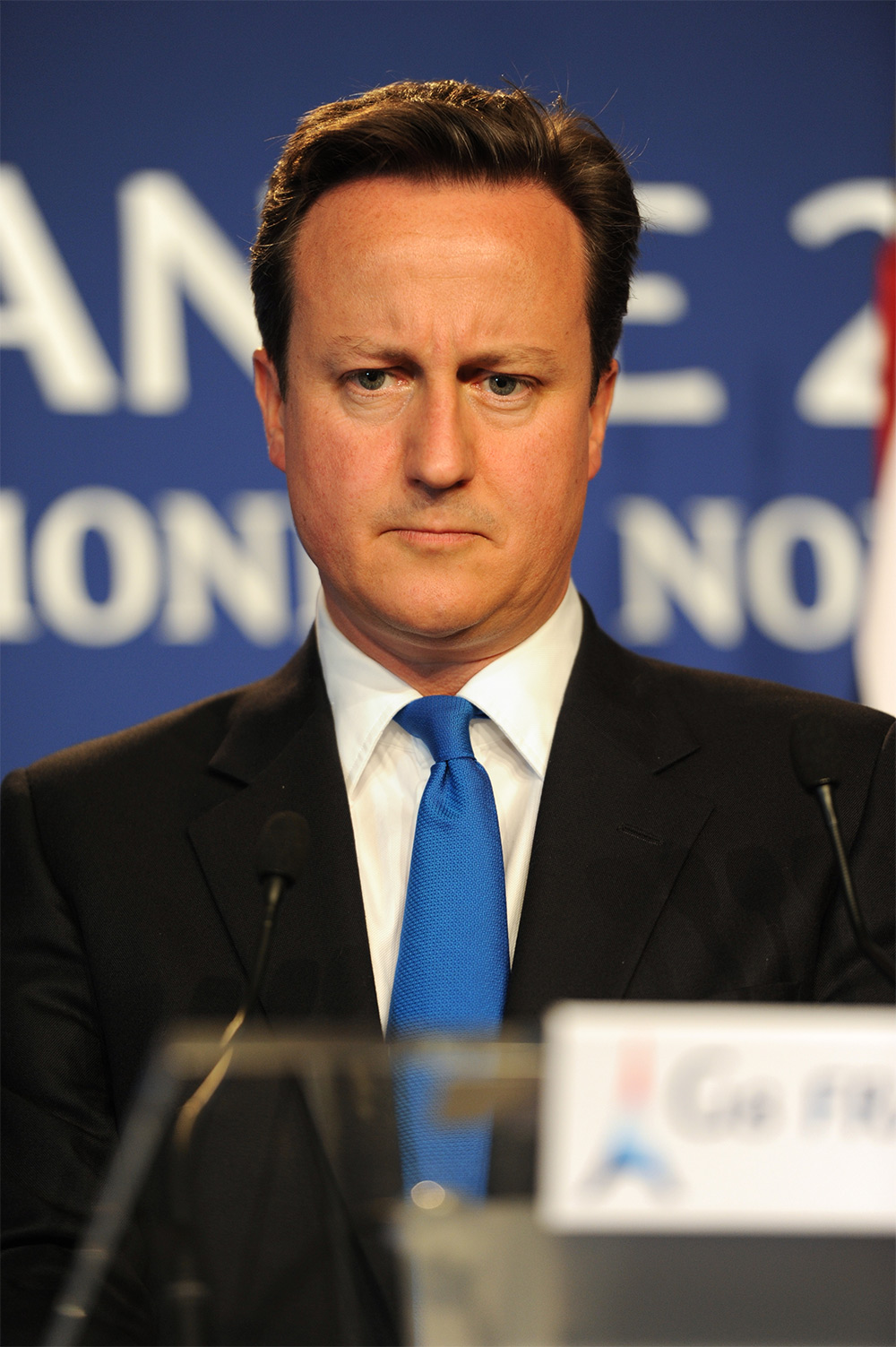David Cameron has had a hard on for banning things online for years now. His big focus in 2013-14 was certain types of pornography, which ultimately led to mandatory filters on new broadband accounts and the banning of such innocuous actions in British porn production as face-sitting and female ejaculation. But if you thought he would stop there, you're sorely mistaken, as Cameron has taken the horrific Charlie Hebdo attacks and used them as a springboard to announce new planned bans in the future: he wants to make encrypting your communications online illegal.
As part of a big announcement that saw the Prime Minister also talk up a a new ‘snooper's charter,' that would force ISPs to store the content of online communication, as well as the meta-data, Cameron said that he would make it illegal to use forms of communication that couldn't be read by the government authorities even if they have a warrant.
“In our country, do we want to allow a means of communication between people which […] we cannot read?” he said, comparing current forms of digital communication with phone and snail-mail, which can be read by the authorities with a warrant. Or by GCHQ and the NSA whenever they want because they hoover up all of that information anyway.

Can someone help Mr Cameron install WhatsApp? He looks very confused.
However, Mr Cameron may have a hard time policing such a rule, since it would essentially ban many of the communication tools used by everyday citizens. Since the Edward Snowden revelations, many instant messaging tools have switched to using strong encryption for simple messages. Making that illegal, would ban services like the Mega file locker, WhatsApp and Apple's iMessage and Facetime. The only way that such a ban could take place is if those services officially shut down in the country, which no doubt they would have a problem with as it would theoretically lead to a loss of a large chunk of business for all companies involved.
Similarly, how do you stop millions of people using popular services, when many people use them specifically because they know that their data is more secure than if they used others?
Understandably, privacy groups have criticised Mr Cameron's actions, suggesting that there are many legitimate reasons people use encryption tools, such as those in fear of being targeted by criminals or harassers, as well as those in other countries using them to dissent against their government in relative safety.
Fortunately Cameron only pledged to go this far if his party won a majority in the next election. Chances are that isn't going to happen.
Discuss on our Facebook page, HERE.
KitGuru Says: Though don't expect UKIP to be a big fan of encryption either. Terrorists use it don't you know.
Image source: Wikimedia
 KitGuru KitGuru.net – Tech News | Hardware News | Hardware Reviews | IOS | Mobile | Gaming | Graphics Cards
KitGuru KitGuru.net – Tech News | Hardware News | Hardware Reviews | IOS | Mobile | Gaming | Graphics Cards



I’m trying very hard to suppress the fury I feel right now. I’m more tempted than ever to follow him around snooping and taking pictures of him doing bad stuff; more tempted than ever to monitor his communications and see what he’s thinking. I *really* hate this stuff.
Out of touch with reality … What will happen in the end is they will not ban it but enforce developers to provide a back-door for the GCHQ and NSA so they can snoop on us. I see why they think they need to see what terrorists are planning, although ‘Quis custodiet ipsos custodes?’
How do we prevent terrorism? By letting anyone with minor knowledge of computing see everything you say and do online!
“His face looks like a magic pebble. It’s like if you rubbed it glitter would come out of his ears!” – Bill Bailey on David Cameron.
If stepping on our rights like this had a measurable positive impact on our security then *maybe* it would be justified. However, the impact would not be measurable and would probably be negligible even if it was.
I understand why he’s saying these things though. It’s an election year and he needs to stand out from all the other politicians that don’t deserve my vote.
And then the actual criminals would still use encryption anyway…..
Once again punishing the innocent and improving nothing
Mr Cameron asking that everyone’s conversation be yours to know is insane, what next? inserting a gps tracker and microphone at birth or entrance into the country? would you prefer everyone be tagged with it in a cattle tag? the only thing a dinosaur like yourself should be doing with the internet is taking down copyright material torrents like books and films, watching new series just damages their numbers and prevents you showing up as interested in the show thus it gets stopped. anyone that wants games buys them on ‘steam sales’ anyway so no damage there. the point is leave things like porn and communications alone.
I believe Mr. Cameron just lost a large chunk of his potential votes.
Soon we won’t be able to talk to each other in the road without a government agent right next to us listening to and recording what we say.
Amazing intit? Curtailing freedoms in the name of keeping freedoms?!
Yes, let’s send everything in clear text so even non-hackers can get all of our personal.data.
” I knew it was the right thing to do when not only my American ultra-right-wing colleagues but also my friends from the Illuminati agreed.”
Sooooo 2 votes
Well it seems it is not all just looks… He actually is a right dumb face sitting loving squirtaholic cunt. XD
I’d be bothered about this if it was workable. Since it isn’t, I’m not!
As a member of the “American ultra-right-wing” I am offended by your comment. Even I disagree with the PM. It’s the white American liberal you have to watch out for.
And as what could loosely be termed a European ‘liberal’, I whole-heartedly defend your right to be offended and say so as much as I respect your right to privacy.
Know I’m late on this one but I might as well start using my VPN for everything but gaming now. That’s taking the piss!
already happens from your mobile phone